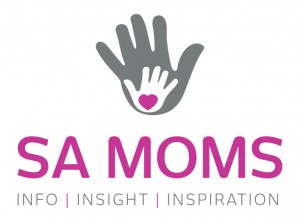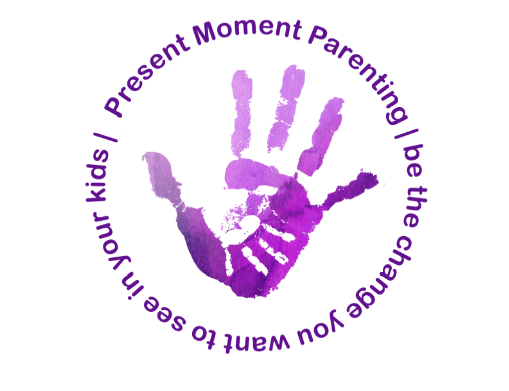
Children are one of life’s great gifts in terms of feedback that help us to expand our knowledge of ourselves and challenge us to become more open and self-aware. If we’re open to their feedback and challenges, then we, in turn, can help them to come to a deeper self-knowledge and understanding, and so we grow in tandem. Nowhere have I found this to be more profound in my own life than my journey with giftedness.
In Primary School we were all subjected to IQ tests as a matter of standard schooling procedure. I didn’t think much of it and was never given my results, just shipped off to a Centre for Gifted Children in the afternoons. In my mind I had done really well at a test and was now being punished for it by being sent to extra school after school with a bunch of socially inept strangers. I rejected the experience, I rejected the label, and I got on with my life.
The only time the “gifted” label ever came up was when I was to be berated for not achieving high enough. Unlike most gifted kids, I was a straight A student. Straight A’s and gifted labels do not go down well in a high school environment. And nobody was going to call me a nerd. Again, reject the label and get on with life.
School became a game of ‘fight the boredom’ and I regularly smoked dope or took LSD at school to challenge myself and see if I could still get the straight A’s even if I wasn’t straight. I could. And so this giftedness brewed a kind of delinquency and a definite sense of rebellion and a rabid dislike of labels, which I still have today.
After leaving school I never really thought about it again... Until I had kids of my own. And even then, having rejected the label and everything that goes with it myself, I didn’t even consider it when it came to my own kids. Not when Kai started speaking at 8 months old. Not when Riven started questioning the meaning of life at 5. I considered their precocious vocabulary and insatiable appetites for information and quirky ways of seeing the world as just part of a normal childhood. I also considered their monstrous tantrums, inability to wear regular clothing and rejection of adult authority as part of a normal childhood.
It was only when we had a series of crises in our family and the kids were taking strain that I sent them to a psychologist friend for some support and life skills. She implied their giftedness and asked if they’d had their IQ tested. I questioned what greater purpose it would have to torture them in this way and she simply suggested that there were certain things that gifted kids struggled with more than others and it might help to know.
And so began an enormous and very fascinating learning curve for me. And the more I have learned on the subject – by reading books and attending lectures and chatting to other parents of gifted kids - the more I came to understand not only my own children, but myself.
It has been such a liberating journey for me as I’ve discovered traits that all gifted people share that I had spent years trying to “fix” in myself. There were so many things growing up that I had to just “suck up” (itchy clothing, an unjust world) or repress (extreme sensitivity, knowing the answer without knowing how) or learn to adapt to (loud classrooms, repetition, boredom) because they simply weren’t understood.
In our day the label of “gifted child” earned you extra work. These days there is so much more information available and the label is used to assist kids who essentially fall into their own category of special needs.
Most of us still balk at the label “gifted” because it seems to carry with it a sense of superiority and elitism. But we have no issue with labeling a gifted sportsman or musical performer. Somehow when we enter the realm of the brain it’s not ok to own your strengths. Children get teased for being a “brain”, get called nerds and ostracized. Children learn to ‘dumb down’ to fit in. I know - I did.
It would have helped me growing up to know that this label carried a lot more alongside the ability to pass subjects tripped out on drugs. It would have saved me thousands of Rands in self help books to know that being emotionally sensitive was not a disorder, that being upset by minor injustices was part of who I am, that being unable to focus in a noisy environment was not something that I needed to learn to deal with.
And my inability to understand and accept myself spilled over into how I dealt with my kids – sending them for years of OT to overcome the “sensory issues”, downplaying their extreme anxieties, not providing adequate intellectual stimulation.
You see, when we are blind to something in ourselves, as parents, when we have rejected a certain aspect of our lives, we cannot possibly help our kids to accept it in themselves. And they will display what we reject in ourselves and portray it loudly, to help us to expand that window of self awareness and grow into everything we are but cannot yet see.
So if a label can open up a journey of self-discovery for you or your child, if it can be used in a way to enlighten rather than to limit, if it will expand your knowledge and help you to guide your child into self-acceptance, then use it.
Never stop with the label though. A label of “gifted” is no more useful today than it was when I was growing up if we don’t explore the depths of what it means and how it can assist us in living a fulfilling life. A label is not who you are, but it can certainly guide you to a richer understanding of who you are if you can use it without getting attached to it.
The only time the “gifted” label ever came up was when I was to be berated for not achieving high enough. Unlike most gifted kids, I was a straight A student. Straight A’s and gifted labels do not go down well in a high school environment. And nobody was going to call me a nerd. Again, reject the label and get on with life.
School became a game of ‘fight the boredom’ and I regularly smoked dope or took LSD at school to challenge myself and see if I could still get the straight A’s even if I wasn’t straight. I could. And so this giftedness brewed a kind of delinquency and a definite sense of rebellion and a rabid dislike of labels, which I still have today.
After leaving school I never really thought about it again... Until I had kids of my own. And even then, having rejected the label and everything that goes with it myself, I didn’t even consider it when it came to my own kids. Not when Kai started speaking at 8 months old. Not when Riven started questioning the meaning of life at 5. I considered their precocious vocabulary and insatiable appetites for information and quirky ways of seeing the world as just part of a normal childhood. I also considered their monstrous tantrums, inability to wear regular clothing and rejection of adult authority as part of a normal childhood.
It was only when we had a series of crises in our family and the kids were taking strain that I sent them to a psychologist friend for some support and life skills. She implied their giftedness and asked if they’d had their IQ tested. I questioned what greater purpose it would have to torture them in this way and she simply suggested that there were certain things that gifted kids struggled with more than others and it might help to know.
And so began an enormous and very fascinating learning curve for me. And the more I have learned on the subject – by reading books and attending lectures and chatting to other parents of gifted kids - the more I came to understand not only my own children, but myself.
It has been such a liberating journey for me as I’ve discovered traits that all gifted people share that I had spent years trying to “fix” in myself. There were so many things growing up that I had to just “suck up” (itchy clothing, an unjust world) or repress (extreme sensitivity, knowing the answer without knowing how) or learn to adapt to (loud classrooms, repetition, boredom) because they simply weren’t understood.
In our day the label of “gifted child” earned you extra work. These days there is so much more information available and the label is used to assist kids who essentially fall into their own category of special needs.
Most of us still balk at the label “gifted” because it seems to carry with it a sense of superiority and elitism. But we have no issue with labeling a gifted sportsman or musical performer. Somehow when we enter the realm of the brain it’s not ok to own your strengths. Children get teased for being a “brain”, get called nerds and ostracized. Children learn to ‘dumb down’ to fit in. I know - I did.
It would have helped me growing up to know that this label carried a lot more alongside the ability to pass subjects tripped out on drugs. It would have saved me thousands of Rands in self help books to know that being emotionally sensitive was not a disorder, that being upset by minor injustices was part of who I am, that being unable to focus in a noisy environment was not something that I needed to learn to deal with.
And my inability to understand and accept myself spilled over into how I dealt with my kids – sending them for years of OT to overcome the “sensory issues”, downplaying their extreme anxieties, not providing adequate intellectual stimulation.
You see, when we are blind to something in ourselves, as parents, when we have rejected a certain aspect of our lives, we cannot possibly help our kids to accept it in themselves. And they will display what we reject in ourselves and portray it loudly, to help us to expand that window of self awareness and grow into everything we are but cannot yet see.
So if a label can open up a journey of self-discovery for you or your child, if it can be used in a way to enlighten rather than to limit, if it will expand your knowledge and help you to guide your child into self-acceptance, then use it.
Never stop with the label though. A label of “gifted” is no more useful today than it was when I was growing up if we don’t explore the depths of what it means and how it can assist us in living a fulfilling life. A label is not who you are, but it can certainly guide you to a richer understanding of who you are if you can use it without getting attached to it.







 RSS Feed
RSS Feed